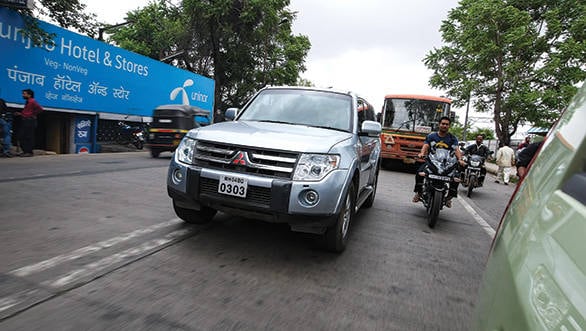Is odd-even rationing of road space the answer to Delhi's pollution problem?
In a bid to curb the rising pollution in Delhi, the state government has proposed a road-space rationing measure for the city. According to the regulation, which the government plans to put into effect from January 1, 2016, vehicles with odd and even last digits on their licence plate numbers will be allowed to ply on alternate days.

The rule will not only extend to approximately 90 lakh vehicles that are registered in Delhi, but also to vehicles entering from other states. Public transport vehicles, however, will be exempt from the rule.
This new move has been proposed in light of the recent findings submitted to the Delhi High Court by the Centre for Science and Environment (CSE) which stated that there has been a "sevenfold increase" in Delhi's air pollution since October this year. Vehicular emissions were cited as one of the two prime reasons for the drop in the quality of air. As of now, the High Court has imposed checks on construction sites and waste burning to bring down the air pollution that contributes to the city's alleged "gas chamber"-like state.
The proposal, though, has met with its share of resistance. For good reason, because if the law is incorporated, you will only be allowed to use your personal vehicle for half the days of the month. Which brings up the question of how would you be getting to work or making it to important appointments on other days.  During the emergency meeting in which this proposal was decided upon, the state government took this point into consideration. The solution, according to Chief Secretary KK Sharma, was  to "increase public transport in the city," but so far, no concrete plans in this direction have been announced.
Other doubts that have been voiced include the consequences of arriving in Delhi in a vehicle with the wrong last digit for that day. At the moment, the details of the penalties for violating these rules haven't been decided. Another loophole that has been discussed at length is the possibility of commuters purchasing seperate vehicles bearing registration numbers ending with odd and even digits - further adding to the traffic congestion in the city. While the Delhi Government has gone so far as to announce the development of a mobile app for citizens to report "visibly polluting" vehicles, these are some points that they would need to fully consider before laying down the law.
A similar method of restricting traffic was first employed in Beijing, China, back in 2008 where vehicles with odd and even registration numbers were able to drive on roads on alternate days. This restriction was implemented temporarily during the 2008 Olympics. Some sources reported a 40 per cent reduction in daily vehicle emissions after the policies were implemented. The permanent version of this rule, implemented thereafter, was adequately relaxed - this rule dictated that a vehicle with a registration number ending in a particular digit was banned from using the road for only one day of the week. For instance, automobiles with end numbers 1 or 6 would not be allowed to ply on Mondays. Also, the government ensured that the numbers banned for a particular weekday would rotate every three months - to avoid the chances of only certain road users getting inconvenienced permanently. But what's worth noting here is that while odd-even rationing may cut traffic by up to 45 per cent (depending on the local modal traffic mix), the digit-per-day system brings it down by only 20 per cent.
Another alternate suggested is the implementation of Congestion Charges, a la London, where a fee is charged to most motor vehicles (depending on size and emission levels) operating within heavily congested areas during peak hours (weekdays, 7am to 6pm). The funds accumulated through these charges in London are allocated towards development of the city's transport system - if this model is put in place in Delhi, it could then address two problems - traffic congestion and raising of investment for infrastructure.
Goes to show, that a regulation like this, however well-intended, requires authorities to examine all possible consequences, before being implemented. If you have any suggestions in this regard, let us know in the comments below.
New developments on the odd even policy in Delhi:
High Court approves Delhi Government's odd-even traffic rule for a trial period
.